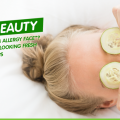Over the last few years, we’ve been spending considerably more time indoors. As such, we’ve had less natural light than we would normally get – something that has had a significant impact on our collective immune systems.
Not being outside, particularly during the day, can actually have a direct effect on how the body functions. It turns out that we need natural light to regulate how our bodies respond to infections.
Evidence for this comes from evolutionary history. We’re adapted to create the hormone, vitamin D, from sun exposure. In other words, we’re designed from the ground up to be outside and part of nature. It’s how Darwinian selection works.
Unfortunately, if we spend too long inside, we don’t get all the benefits of exposure to the sun. Consequently, we don’t produce as much vitamin D, and our immune systems don’t work as well as they should.
In this post, we explore some of the things that happen if your home is too dark. We then discuss how you can make it brighter or get more access to sunlight.
It Reduces Your Resistance To Disease
At the start of the pandemic, researchers suggested that people should take vitamin D pills to bolster their defences against infection. The hope was that by improving the immune system, people could stave off disease.
However, the majority of people do not regularly take vitamin D supplements. Because of this, they usually don’t produce enough vitamin D in their system, leaving them vulnerable to infection.
It’s not just COVID-19, either. Not having sufficient vitamin D levels in the blood can put you at risk of all sorts of other diseases, including tuberculosis, common colds, flus and pneumonia.
It’s not just darkness in the home, though, that’s a problem. It’s how far detached it is from the rest of the environment. Conditions in the average suburban property are very different from those in our natural habitat – the forest.
Researchers have actually proven this. They’ve found that people who spend a long time in the forest – usually a couple of days, increase the activity and number of natural killer cells in their blood. These cells help to remove pathogens or virus-infected cells and remove infection from the body. Scientists think that this occurs because of substances called phytoncides that trees and other plants release. Evidence suggests that they instruct our immune systems to work better, encouraging them to fight off disease.
Crucially, they say that you need to be fully immersed in natural environments to get the full effect. Therefore, even if your home is bright, you might not be getting the full benefits.
It Affects Your Ability To Sleep
The other problem with perpetually dark homes is that they affect your ability to sleep. Our bodies need sunlight during the day to tell them that now is the time to be active and get on with things, like finding food. But, in the modern world, we live in crowded cities where darkness is the norm.
Getting outdoors or increasing the level of light in the home can improve our circadian rhythms. When we have enough light exposure during the day, particularly at lunch time, our hormones can better go through their normal cycles.
It’s all to do with how much light ultimately winds up hitting the back of our eyes. When light hits the retina, it sends a signal to the brain that it needs to release hormones associated with wakefulness. This, in turn, activates the body’s master clock, telling you to be alert in the day, and then restful at night.
If your home is too dark, though, it can affect your ability to sleep. Your rhythm can become disrupted and you might not get enough light to move effectively through the wake-sleep cycle.
Of course, both lack of sleep and reduced immune function can combine to make you even more vulnerable to disease. If you don’t get enough shut-eye, it can hamper your immune response, as can a lack of vitamin D.
How To Fix Low Light Levels In Your House
If you are worried about the level of light in your home, there are several ways that you can respond.
The first is to give yourself a blast of sunlight in the morning. Instead of eating breakfast at the kitchen table, dine on your patio or balcony if you have one. Going outside, even if it is just for a few minutes, will give your body the sunlight that it needs to function optimally.
Second, during your lunch breaks, take time outdoors in nature. Exposing yourself briefly to sunlight at the brightest part of the day may have even more of an effect than going out in the morning.
If you are a shift worker and sleep during the day, it’s a good idea to get a natural light emitter that reproduces the sun’s rays during your morning (which will be most people’s evenings). This way, you can replicate the effect of the morning sun and trick your body into producing the hormones that it needs to produce.
Whether you are a morning or a night worker, it is also a good idea to install blackout curtains. These help to reduce any artificial street light coming into your home at night. While light during the day can be extremely beneficial, night time exposure is not helpful and, in some cases, can be harmful.
Beyond these measures, you’ll need to consider making modifications to your home. One idea, recommended by Renewal by Andersen home window solutions, is to create an indoor-outdoor space in your home with patio doors. Here, you essentially open up the rear of your house between the house itself and the patio, allowing sunlight to flood in in the morning.
Remember, even if the glass you install has a UV filter, that doesn’t matter. What counts is the brightness of the visible light. Hence, just making your breakfast by the back window in full sunlight can be enough to put your body into its wakefulness cycle.
Another option is to install skylights. These allow you to bring considerably more light into your home, particularly in the middle of the day.
The effectiveness of skylights is truly staggering. Even a small skylight can make being in your rooms feel like you are outside. Place this type of window whenever you can, including in any single-story kitchen extensions and your attic.
If none of these options are available, simply painting your interiors white can help. White reflects natural light, allowing rooms to appear brighter, even if the source of natural light is just a small window.
Failing that, you can also try mirrors. Again, these help to bring more light into your rooms in the morning.
Wrapping Up
Being in perpetual darkness all the time is not good for the human body. We need light, particularly during the day, to be at our best.
If you are the sort of person who is prone to regular infections, a lack of natural light could be the problem. If your body can’t make enough vitamin D or you don’t get sufficient deep sleep, it will have knock-on effects on your immune system that can make you vulnerable.
Of course, it’s not just your physical wellbeing that light affects, but also your mental wellbeing too. Lack of access to sunlight will often leave you feeling tired and listless.
The good news is that the solutions are relatively straightforward. Perhaps the simplest long-term solution is to simply make modifications to your home.
Related Posts
- Health & Fitness
Food FactsDiet & Nutrition Mind & Body Exercise & Fitness
- Does your family background affect your mental health?
If you want to protect your mental health, it is important to understand the factors…
- Psychological Triggers And How They Affect Your Mental Health
Although it has largely been misused in online discourse to mean provoking an emotional reponse,…


















